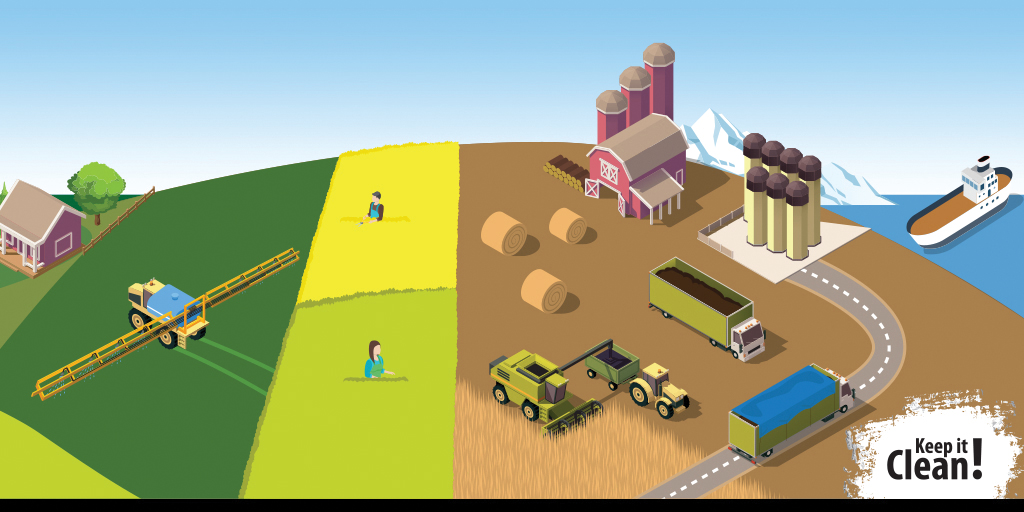BREAK THE REPAIR BARRIER
BY KYLE LARKIN
The agricultural sector is the backbone of our economy, providing essential resources that sustain communities and drive economic growth. However, farmers face numerous challenges, from unpredictable weather patterns to market fluctuations. Among these challenges is a significant yet often overlooked issue: the ability to repair their own equipment.
Farmers have always taken pride in their ability to maintain and repair their machinery. A farmer’s toolbox is a symbol of resiliency, allowing them to quickly fix broken equipment and get back to work. This DIY approach has been essential, especially during critical seeding and harvesting periods when downtime can mean the difference between profit and loss.
However, the advent of modern, technologically advanced farm equipment has complicated this tradition. Today’s tractors and combines are more digital than mechanical, equipped with proprietary software, complex electronics and specialized parts that often require manufacturer intervention for expensive, time-consuming repairs at authorized service centres. This shift has significantly impacted the autonomy of farmers.
While enhancing productivity, modern farming equipment has also increased the dependency of farmers on manufacturers for repairs and maintenance. This dependency can be costly, especially when equipment breaks down during peak seasons. Due to a vast labour shortage, farmers also face significant delays as they wait for authorized technicians or parts. This may result in substantial financial loss. By retaining the ability to repair their own equipment, farmers can reduce downtime, control costs and maintain productivity. Farmers technically can repair their own equipment, but this may prove difficult. To do so necessitates the purchase of often expensive user manuals or software from dealerships, which runs counter to the right to repair (R2R).
Farmers are known for their independence and ingenuity. The ability to repair their own equipment is a natural extension of these qualities. It allows them to be more self-reliant and adaptable, particularly in remote or rural areas where access to authorized service centres is limited.
In advocating for R2R, farmers also push back against monopolistic practices that limit their options and increase their vulnerability. With the freedom to choose how and where they repair their equipment, farmers can better manage risk and ensure the continuity of their operations.
With Grain Growers of Canada (GGC) on the frontlines helping parliamentarians recognize the importance of this issue, the push for R2R is gaining momentum. We advocate for the passing of Bills C-244 and C-294 in the Senate, both of which support R2R. Several provinces have passed or are considering legislation in the same area. These efforts and others represent a step towards greater autonomy and fairness.
It is crucial for policymakers, manufacturers and the agricultural community to work together. By supporting R2R, we can create a more equitable and resilient agricultural sector. Farmers deserve the freedom to maintain their equipment, safeguard their livelihoods and continue feeding the world.
R2R is not just about fixing machinery; it is about empowering farmers and ensuring the long-term viability of our agricultural industry. It is a right that farmers have had and one they must continue to be granted to thrive in an ever-changing world.
By supporting R2R for farmers, we can ensure they can maintain productivity, control costs and reduce downtime. Farmers should not be at the mercy of manufacturers when it comes to maintaining the tools of their trade. Empowering them with R2R is a step toward a more self-sufficient and prosperous future for all.
Kyle Larkin is the executive director of GGC.







Comments